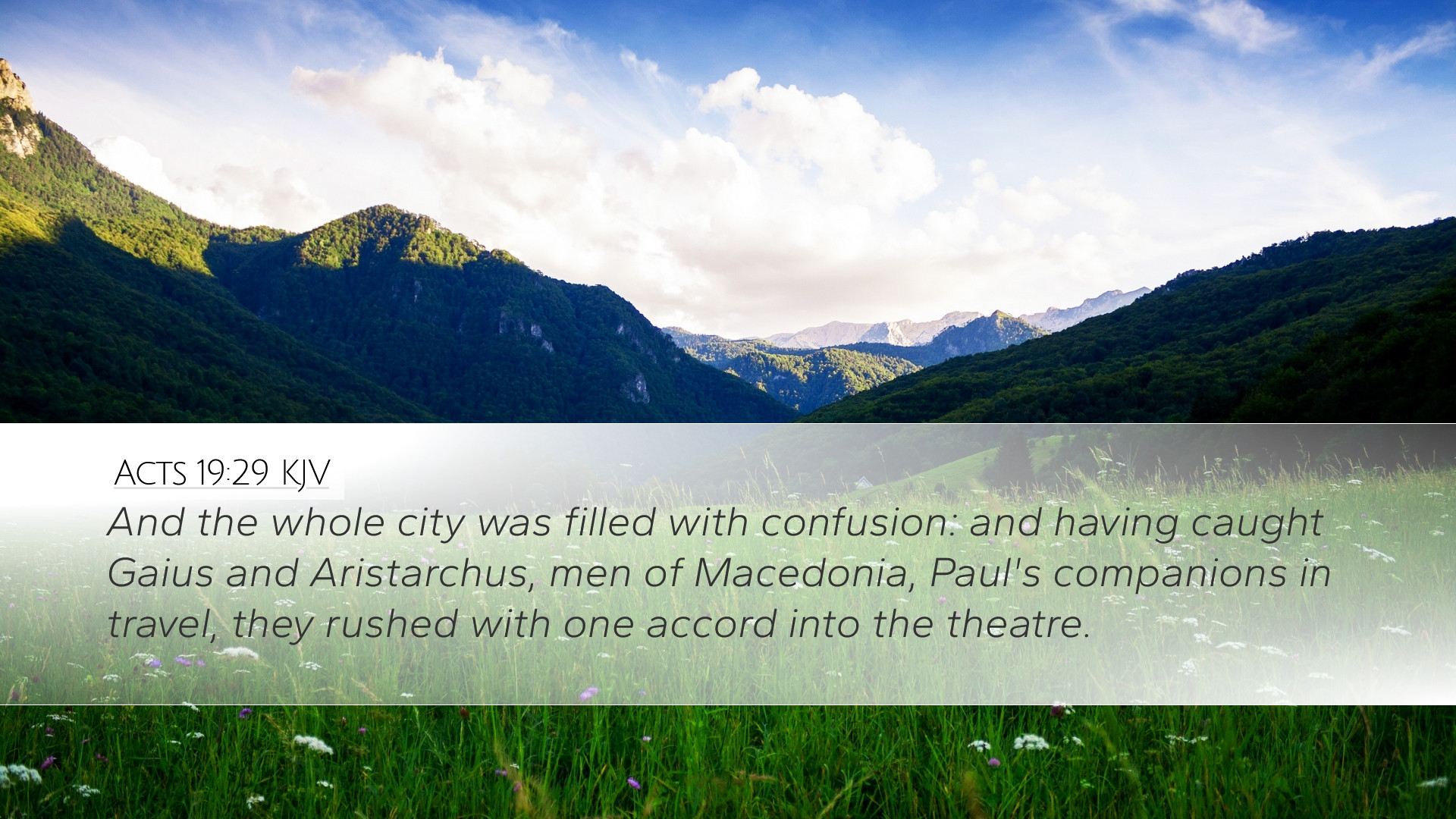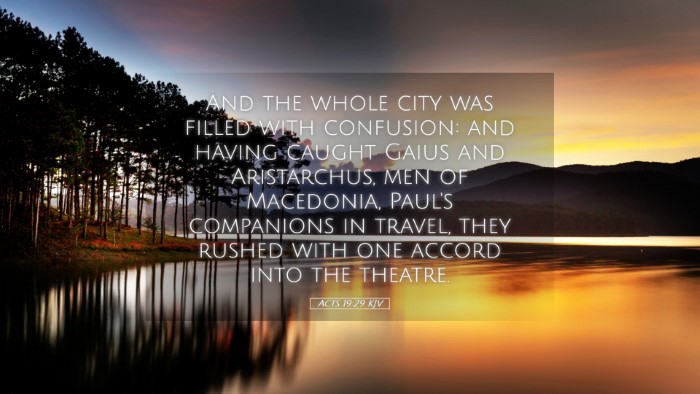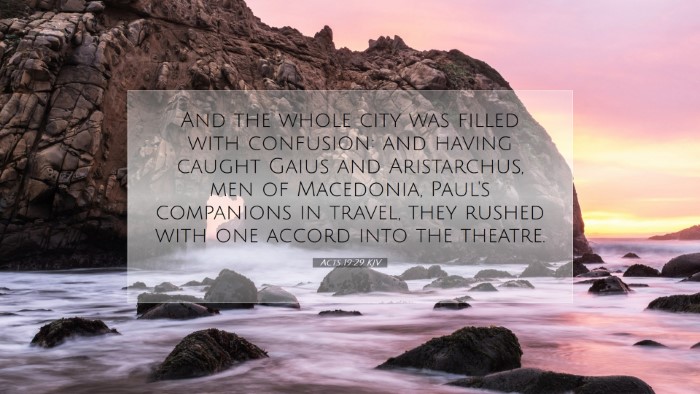Commentary on Acts 19:29
Verse: "And the whole city was filled with confusion: and having caught Gaius and Aristarchus, men of Macedonia, Paul's companions in travel, they rushed with one accord into the theatre."
Introduction
The passage in Acts 19:29 captures a moment of intense turmoil and disorder within the city of Ephesus. This confusion arose from the clash between the early Christian movement and the prevailing pagan culture, particularly the worship of Artemis. Such moments of tension are significant for theological, historical, and pastoral reflections. The reactions of the crowd and the actions of individuals involved present a rich tapestry for interpretation.
Contextual Analysis
This verse takes place during Paul's third missionary journey, emphasizing the growing impact of the Christian faith on the ancient world. Ephesus, a center of commerce and hedonism, was also known for its temple dedicated to Artemis, one of the most revered deities in the Greco-Roman pantheon. The economic backlash experienced by artisans related to idol-making due to the success of Paul's ministry contributes to the unrest described in this verse.
Historical Background
The riot instigated by Demetrius, a silversmith whose trade was threatened by the spread of Christianity, illustrates the intersection of faith and economics. The silversmith's complaint reflects not only a concern for his livelihood but also a deeper anxiety regarding the cultural hegemony of Ephesus. Matthew Henry notes that this riot arose from an effort to protect the local economy against the encroaching message of Christianity.
Commentary Insights
1. The Nature of Confusion
Albert Barnes discusses the agents of confusion during this event, emphasizing how easily a crowd can be stirred to irrational behavior when united by fear, anger, or economic interest. The phrase "filled with confusion" suggests a collective loss of rationality, indicative of mob mentality where individual reason is overshadowed by the group dynamic.
2. The Role of Gaius and Aristarchus
Gaius and Aristarchus, being companions of Paul, represent the vulnerability of early Christians in a hostile environment. Adam Clarke points out that their abduction reflects not just a physical threat but also spiritual implications, where the adversaries of the Gospel are willing to resort to violence to uphold their belief system. Their identity as Macedonians reinforces the notion that the movement of Christianity was not localized but encompassed diverse regions and peoples.
3. The Theatre as a Setting
The choice of the theatre as the gathering point is significant. Theatres in the Greco-Roman world were not just venues for entertainment; they were also integral to public discourse and political expression. The crowd's rush into the theatre underlines how public opinion was often orchestrated in dramatic and visceral terms, which echoes the Gospel's tendency to confront societal norms and values.
Theological Reflections
This passage offers profound theological insights regarding the nature of conflict faced by the church. The instances of aggression against the followers of Christ exemplify a broader narrative in Scripture concerning the opposition believers face amidst cultural changes. Matthew Henry emphasizes the timeless truth that the message of the Gospel provokes resistance because it challenges foundational beliefs of society.
Lessons for Contemporary Application
Modern pastors and theologians can draw from this text lessons on resilience in the face of opposition. The early church's courage in confronting the culture surrounding them serves as a model for today. In a world where Christianity is often marginalized or attacked, the response of believers should be marked by integrity, reliance on the Holy Spirit, and unwavering commitment to the mission of the church.
Call to Action for the Church
- Engagement with Cultural Issues: Just as Paul did, modern Christians must remain engaged with cultural issues, articulating the message of the Gospel amidst societal confusion.
- Building Community: The involvement of Gaius and Aristarchus emphasizes the importance of community in the church, where support and encouragement are vital for faith in tumultuous times.
- Understanding Opposition: Recognizing that opposition may arise in various forms is crucial. The church must prepare spiritually and emotionally for these challenges.
Conclusion
Acts 19:29 serves as a poignant reminder of the historical conflicts faced by the early church and their implications for contemporary believers. Through the insights provided by Matthew Henry, Albert Barnes, and Adam Clarke, we gain a deeper understanding of the complexities inherent in faith's interaction with culture and society. This passage invites us to reflect on our commitment to the Gospel, urging us to proceed with wisdom, courage, and a deep sense of community.


